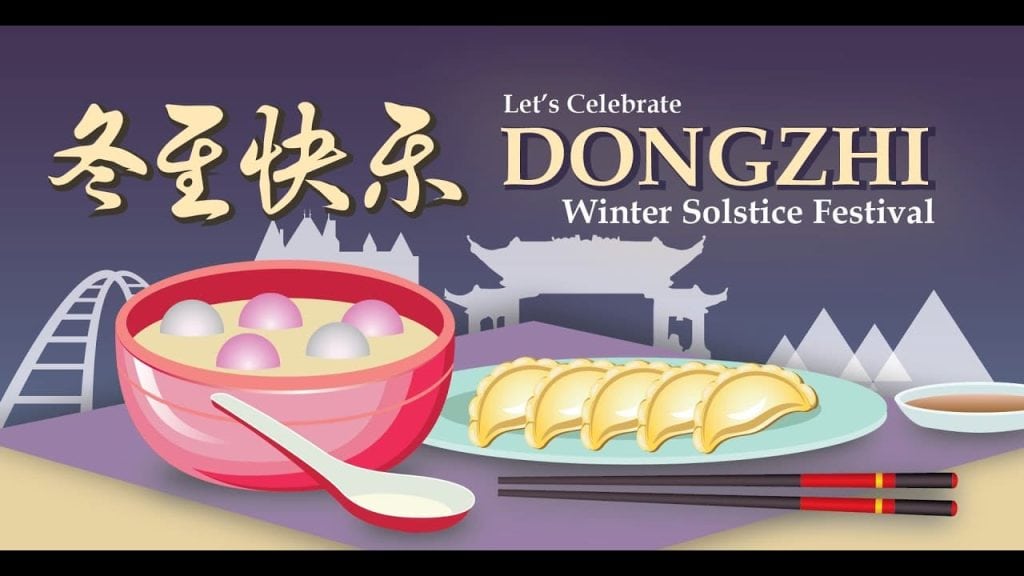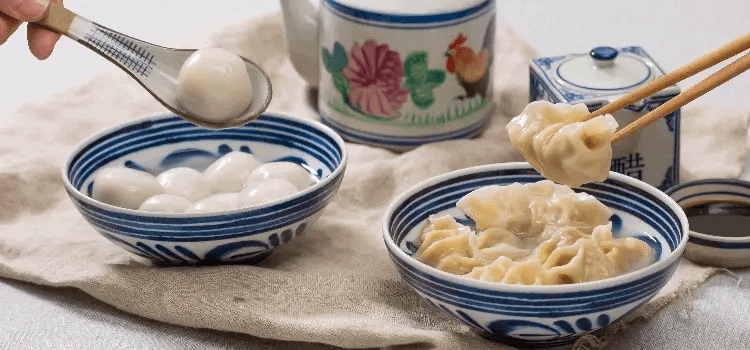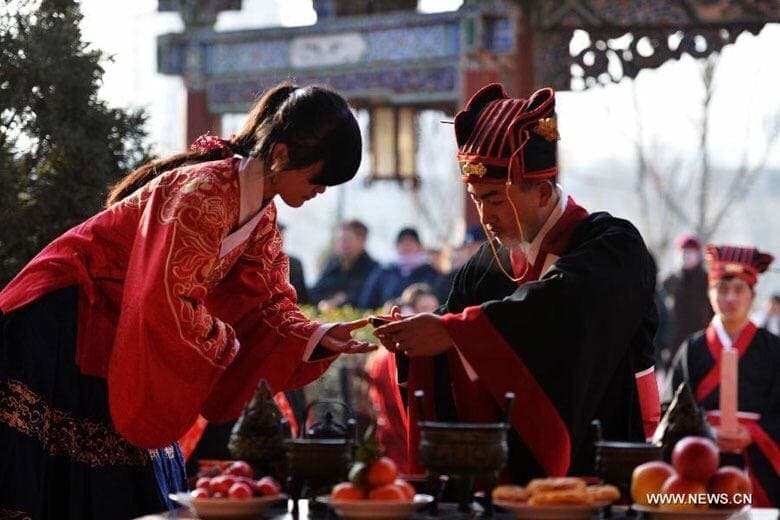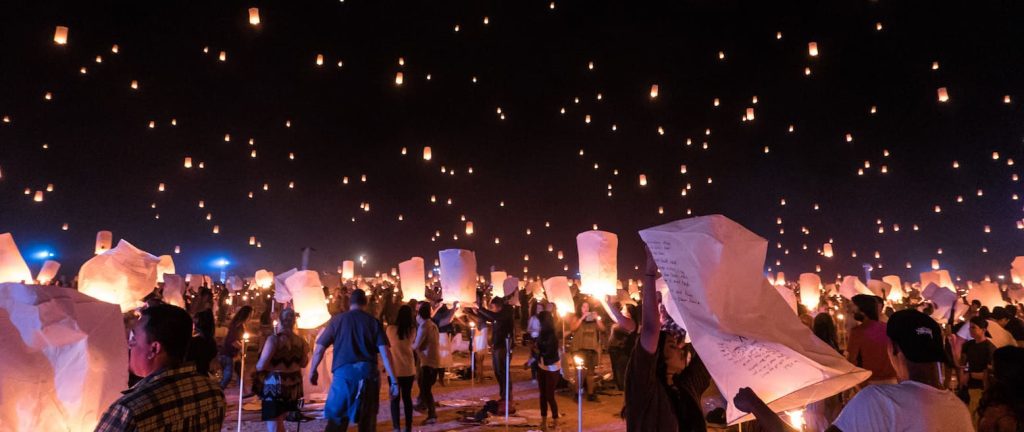Celebrating the Dōng Zhì Festival: The Winter Solstice in China
The winter solstice, the shortest day and the longest night of the year, is a significant time for many cultures around the world. In China, it is celebrated as the Dōng Zhì Festival (冬至), which literally means “winter’s arrival”. The festival dates back to the Zhou Dynasty (1045 BC–256 BC) and is regarded as one of the most important traditional festivals in China. It is a time for families to get together, worship their ancestors, and enjoy various delicacies.

The History and Meaning of the Dōng Zhì Festival
The Dōng Zhì Festival is rooted in the ancient philosophy of yin and yang, which represents the balance and harmony of the cosmos. According to this philosophy, yin is the dark, cold, and negative energy, while yang is the bright, warm, and positive energy. On the winter solstice, the yin reaches its peak and then gives way to the yang, symbolizing the victory of light over darkness and the return of life and warmth. Therefore, the Dōng Zhì Festival is a celebration of the rebirth of nature and the renewal of hope.
The Dōng Zhì Festival also has a close connection with agriculture and health. In ancient times, the winter solstice marked the end of the harvest season and the beginning of a new cycle of farming. People would take a break from their work and enjoy the fruits of their labor with their families. They would also worship the heaven and the earth, as well as their ancestors, to express their gratitude and pray for a good harvest and health in the coming year. The Dōng Zhì Festival is also considered a good time to nourish the body and prevent diseases, as the cold weather can weaken the immune system and cause illnesses.
The Traditional Foods of the Dōng Zhì Festival
One of the most distinctive features of the Dōng Zhì Festival is the variety of foods that are prepared and consumed. Different regions of China have different customs and preferences, but some of the most common and popular foods are:
- Tangyuan (汤圆): These are glutinous rice balls filled with sweet or savory fillings, such as sesame, peanut, red bean, or meat. They are cooked in boiling water and served in a sweet or savory soup. The round shape of the tangyuan symbolizes unity, completeness, and reunion, while the soup represents warmth and harmony. Eating tangyuan on the Dōng Zhì Festival is a tradition that originated in the Song Dynasty (960–1279) and is still widely practiced today, especially in southern China.
- Dumplings (饺子): These are dough wrappers stuffed with various ingredients, such as pork, cabbage, leek, shrimp, or mushroom. They are boiled, steamed, or fried and served with vinegar, soy sauce, or chili oil. The shape of the dumplings resembles the ears, and eating them on the Dōng Zhì Festival is believed to prevent frostbite and keep the ears warm. This custom is more prevalent in northern China, where the weather is colder and the wheat is more abundant than rice.
- Noodles (面条): These are long strands of dough made from wheat, rice, or other grains. They are cooked in boiling water and served with different sauces, soups, or toppings. The length of the noodles represents longevity, and eating them on the Dōng Zhì Festival is a way of wishing for a long and healthy life. Noodles are a staple food in many parts of China, and they can be enjoyed in various ways, such as hot and sour noodles, beef noodles, or scallion oil noodles.
- Rice wine (酒): This is a fermented beverage made from glutinous rice or other grains. It has a sweet and sour taste and a low alcohol content. Drinking rice wine on the Dōng Zhì Festival is a tradition in some southern regions of China, such as Fujian, Guangdong, and Guangxi. It is believed that rice wine can warm the body, dispel the cold, and enhance the festive mood.
The Celebrating Ways of the Dōng Zhì Festival
Besides eating delicious foods, there are also other ways to celebrate the Dōng Zhì Festival, such as:
- Saying the Nines of Winter (数九): This is a way of counting the days from the winter solstice to the beginning of spring. There are nine sets of nine days, each with a different name and meaning. For example, the first set is called “the first nine”, and it means that the cold has just begun. The last set is called “the ninth nine”, and it means that the spring is near. People would recite poems or riddles related to the nines of winter, and observe the changes of the weather and the nature.
- Making roasted meat (烧肉): This is a way of preserving meat for the Chinese New Year, which usually falls about a month after the Dōng Zhì Festival. People in some southern regions of China, such as Guangdong and Guangxi, would slaughter pigs, ducks, or chickens, and roast them with spices and seasonings. The roasted meat would then be stored in a cool and dry place, and eaten during the Chinese New Year celebrations.
- Playing with ice lanterns (冰灯): This is a way of creating art and entertainment with ice and snow. People in some northern regions of China, such as Heilongjiang and Jilin, would carve ice blocks into various shapes, such as animals, flowers, or buildings, and insert candles or electric lights inside them. The ice lanterns would then be displayed in parks, squares, or streets, creating a dazzling and colorful spectacle.
The Dōng Zhì Festival Today
The Dōng Zhì Festival is still widely celebrated in China today, although some of the traditional customs have faded or changed over time. For many people, the Dōng Zhì Festival is a time to reunite with their families, enjoy delicious foods, and appreciate the beauty and wisdom of nature. It is also a time to reflect on the past year, and look forward to the new year with hope and optimism.
The Dōng Zhì Festival is not only celebrated in China, but also in other countries and regions that have been influenced by Chinese culture, such as Taiwan, Japan, Korea, Vietnam, Singapore, Malaysia, and Indonesia. Each of these places has its own unique way of celebrating the winter solstice, but they all share the same spirit of gratitude, harmony, and renewal.
If you are interested in experiencing the Dōng Zhì Festival, you can visit China or any of these places during the winter solstice, and join the local people in their festivities. You will surely have a memorable and meaningful experience, and learn more about the rich and diverse culture of China and Asia.
—
Source(s)









